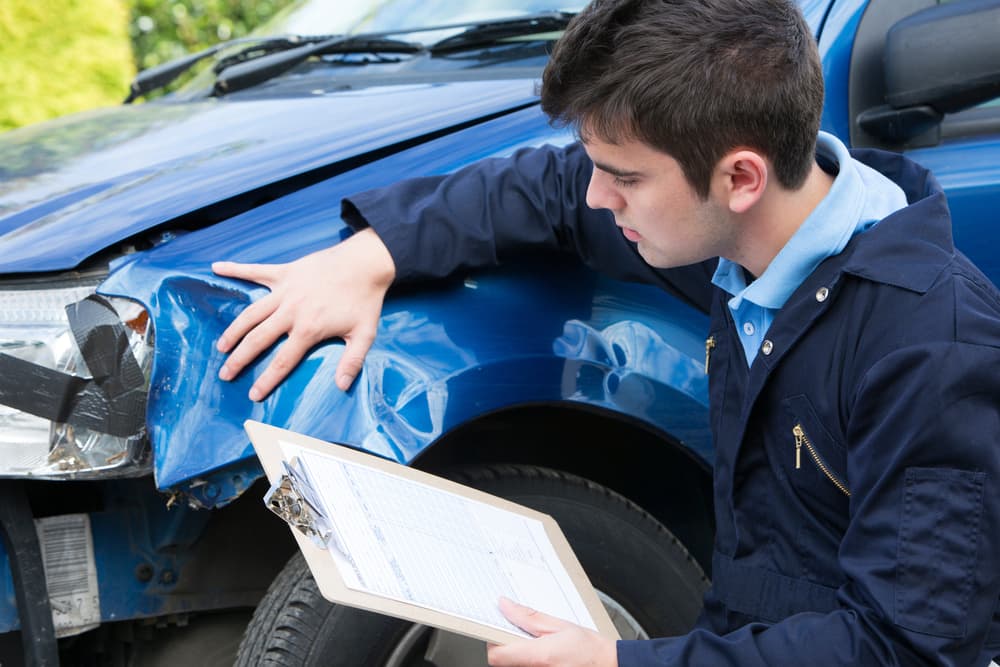Being involved in a car accident is stressful enough. However, if you feel you’re partly to blame for a car accident, it only adds to your stress, and you may have concerns about how the issue will affect you financially. You need to understand how parties determine liability in car accidents and the potential consequences if you share fault for the collision.
You also need to know how to protect your rights and build a strong case to show the other driver was totally, or mostly, to blame. For that, you need to consult an experienced car accident lawyer near you for a comprehensive evaluation of your case and advice regarding your rights and options.
Determining Fault in Car Accidents

Determining fault in car accidents involves a careful examination of the circumstances surrounding the incident.
Different jurisdictions may have specific rules and regulations, but some common factors that courts, attorneys, and insurance companies consider in most cases include:
- Traffic Laws: Violations of traffic laws are often crucial in establishing fault. Running a red light, failure to yield, speeding, and other violations can contribute to determining who is at fault.
- Traffic Violation Tickets: If one driver receives a traffic violation ticket related to the accident, it can be a strong indicator of fault. However, it’s not definitive, and the court may still assess the situation independently.
- Police Reports: The police report filed at the accident scene can provide valuable information. It typically includes details about the incident, statements from involved parties and witnesses, and any citations issued. It may also contain the responding officer’s opinion about who or what caused the crash.
- Witness Statements: Statements from impartial witnesses can be influential in determining fault. Their accounts can provide additional perspectives and help corroborate or dispute the versions of those directly involved.
- Photographic and Video Evidence: Photographs of the accident scene, vehicle damage, and road conditions can help reconstruct the events leading up to the collision. This can also include CCTV camera footage from nearby traffic cameras or store surveillance. Visual evidence can be powerful in determining fault.
- Insurance Company Investigations: Insurance companies conduct their own investigations to determine liability. They may review the evidence, statements, and other factors to decide. However, their assessments may not always align with legal findings.
- Accident Reconstruction: In more complex cases, accident reconstruction experts may be involved. They use scientific methods to recreate the events leading to the accident and determine factors such as speed, impact angles, and contributing factors.
Determining fault can require a complex process, and multiple factors may contribute to the final assessment. If you’re in a car accident and believe you contributed to the car accident, speak with a personal injury attorney in your area. They can assess your claim, gather evidence, and advocate on your behalf to ensure a fair determination of fault.
Shared Fault in Auto Accidents
When multiple parties contribute to the accident, it raises the question of shared fault. Understanding how shared fault is handled can help you assess the potential impact on your legal responsibilities and navigate the aftermath of the accident more effectively.
Comparative Fault
Each state handles comparative fault differently. Texas, for instance, follows a modified comparative fault rule—or proportionate responsibility. Under this rule, you may seek to recover damages so long as you’re not more than 50% responsible for the crash. The amount of compensation you receive will be reduced by your level of fault. So, if the court finds you were 20% responsible, it will reduce your award by 20%.
If there are multiple defendants, the court will assign percentages of fault to each party involved in the accident, including the plaintiff if applicable. Each party is then responsible for their share of the damages based on their assigned percentage of fault.
Insurance companies often use comparative fault principles during the claims process. Adjusters assess the circumstances of the accident and assign percentages of fault to the involved parties. This assessment can impact the settlement amount offered. If parties can’t agree on fault, the case may need to go to trial to have a judge or jury determine fault and liability.
Other states follow different models, and some states don’t allow you to recover damages if you had any fault for the car accident. An experienced personal injury in your area can advise you on how comparative fault affects your case and fight to protect your rights throughout the claims process.
Legal Consequences and Responsibilities in Car Crashes

When you are partly to blame for a car accident, you must understand the legal responsibilities and consequences that you may face. It’s important to be aware of the potential consequences so that you can take appropriate action and protect your interests.
One of the possible implications of being partly at fault is an increase in your auto insurance rates. Insurance companies consider various factors, including fault in accidents, when determining premiums. If you are found to be at fault, your insurance rates may go up, resulting in higher monthly or annual payments.
Additionally, there is a possibility that the other driver or parties involved in the car accident may sue you for damages. This could put you in a precarious position where you’ll be financially responsible for their losses.
A personal injury attorney can guide you on how to protect yourself and navigate the legal process effectively. By having a clear understanding of your legal obligations and taking appropriate steps, you can mitigate the potential negative impacts of being partially at fault in a car accident.
What Should I Do After a Car Accident?
Experiencing a car accident can be a stressful and disorienting situation.
Here’s a step-by-step guide on what to do after a car accident:
- Move to a safe location if possible, especially if the accident occurred on a busy road. Turn on hazard lights and set up warning triangles or flares, if available.
- Check yourself and others for injuries. Call for emergency medical assistance if needed. Do not attempt to move anyone seriously injured unless there is an immediate danger.
- Contact the police to report the accident, even if it’s minor. Obtain a copy of the police report, as it can be valuable for insurance claims and legal proceedings. If the police do not respond to the scene, file a report at the local police station or online, depending on local procedures.
- Exchange contact, insurance, and vehicle information with the other involved parties. Include names, addresses, phone numbers, insurance policy details, and vehicle registration information.
- Take photographs of the accident scene, including vehicle damage, license plates, road conditions, and any relevant signage. These photos can serve as valuable evidence later.
- Obtain the names and contact information of any witnesses. Their statements may be crucial in determining fault.
- Do not admit fault. Refrain from admitting fault or making statements that may be interpreted as an admission of guilt. Stick to providing factual information to the police and your insurance company.
- Do not post anything about the accident on social media. Stay off Facebook, Instagram, X, or any other platform, and never discuss fault or any particulars of the crash. It’s also best not to discuss details of the crash with friends and family. Although they’re rightfully concerned for you, the other driver’s insurance company could contact them and use anything they say against you.
- Report the accident to your insurance company as soon as possible. Provide accurate and complete information about the incident. Follow their guidance on the claims process.
- Get medical attention right away, even if injuries seem minor. Some injuries may not be immediately apparent, and documentation of medical treatment is crucial for insurance claims and potential legal actions.
- Maintain a detailed record of medical treatments, expenses, and any other related costs. This information will be essential for insurance claims and potential legal actions.
As soon as you’re physically able after getting treatment for your injuries, you need to contact a car accident lawyer near you. You also need to consult an attorney if you’re facing challenges with insurance claims or determining fault, or if you suffered serious injuries.
An attorney can provide specific advice and guidance based on the circumstances of your case and local laws and regulations.
Do I Need an Attorney If I Was Partially At Fault for a Car Accident?
Absolutely! You want to minimize your liability after a car accident as much as possible.
If you were partially at fault for a car accident, consult an attorney for several reasons:
- Legal guidance: An attorney can provide you with legal guidance and help you understand your rights and responsibilities. They can explain how the law applies to your situation and advise you on the best course of action.
- Protection Against Unfair Blame: Insurance companies may try to shift more blame onto you to reduce their liability. An attorney can help protect your rights and ensure that you are not unfairly assigned a higher percentage of fault than you deserve.
- Evidence Gathering: Attorneys have experience in gathering and presenting evidence. They can help collect relevant information, such as witness statements, accident reconstructions, and other evidence that may support your case and mitigate your level of fault.
- Negotiating with Insurance Companies: Insurance companies may use your partial fault as a reason to offer a lower settlement. An attorney can negotiate on your behalf to maximize your compensation and ensure that your partial fault is considered fairly.
- Navigating Legal Processes: If the case goes to court, an attorney can navigate the legal processes for you. They can file necessary documents, represent you in court, and ensure that your rights are protected throughout the legal proceedings.
- Determining Fair Compensation: An attorney can assess the full extent of your damages, including medical expenses, lost wages, and pain and suffering. They can work to ensure that you receive fair compensation for your injuries, taking into account your partial fault.
- Handling Complex Cases: Some cases involving shared fault can be more complex. An attorney with experience in personal injury law can handle the complexities of your case, making the legal process smoother for you.
Even if you were partially at fault, you may still be entitled to compensation for your injuries. Speaking with a personal injury attorney can provide you with the necessary legal support and guidance to navigate the complexities of your case and increase your chances of a favorable outcome.
Why Would the Insurance Company Blame Me for a Car Accident?

Several factors can contribute to a determination that you helped cause a car accident, such as:
- You violated traffic laws, such as running a red light, speeding, or making an illegal turn.
- You didn’t yield appropriately in a situation where you were required to.
- You were distracted while driving, such as texting, talking on the phone, or engaging in other activities that diverted your attention.
- You were following too closely and couldn’t stop in time to avoid a collision.
- Your vehicle had a mechanical failure or defective equipment that contributed to the accident.
- You were under the influence of alcohol or drugs at the time of the crash.
If you don’t know your level of fault or disagree with the assessment, contact a personal injury attorney right away to understand your rights and explore your legal options.
Get Legal Help Today if You’re Partly to Blame for a Car Accident
If you believe you may bear some degree of fault for a car accident—particularly a car accident that injured you or others—you need to contact an experienced car accident attorney immediately.

Our San Antonio personal injury attorneys at DJC Law have extensive experience helping people injured in car accidents throughout Texas and Illinois. We’ll carefully review your case to determine if you bear any fault for the car accident and advise you accordingly. We can also advocate for you to help reduce your level of blame and increase your compensation.
Contact us today for a free consultation.


